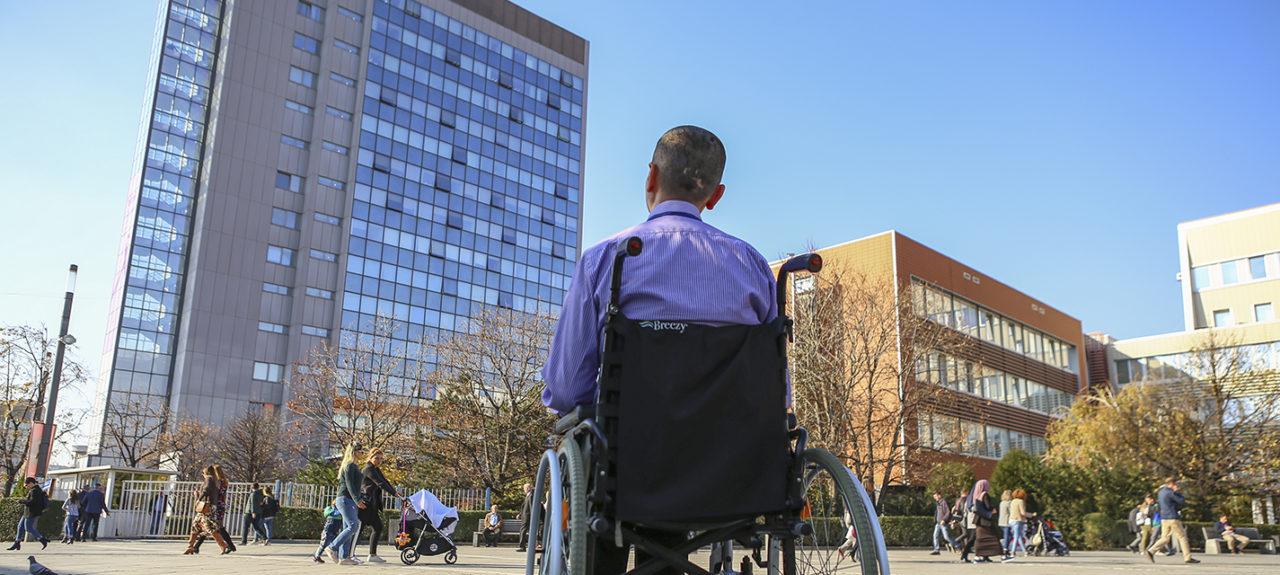
No Callback
From finding a job, to getting up stairs and accessing ATMs. This is life with a disability in Kosovo.
K2.0 sent questions to 12 major companies in Kosovo — Ipko, KEDS, VivaFresh, ElkosGroup, Elkoscender, the Devolli corporation, Birra Peja, Albi Center, Meridian Express, Trepharm, Neptune and Aztech — to inquire about the number of employees with disabilities. Only one replied.
While officials from the institutions suggest new policies will mitigate unemployment, for people with disabilities and their activists, the discrimination has already caused irreversible consequences.
Buildings and spaces are particularly problematic for blind people, since no building has a tactile surface.

Valon Fana
Valon Fana has completed his BA in journalism at the University of Prishtina, and is now nearing the end of his MA studies in journalism and public relations. He has worked at the online newspaper Observer and on the Klan Kosova show Ekonomia me Erëzën (Economy with Erëza). Valon is a K2.0 Human Rights Journalism Fellowship program fellow (2018 cycle).
This story was originally written in English.